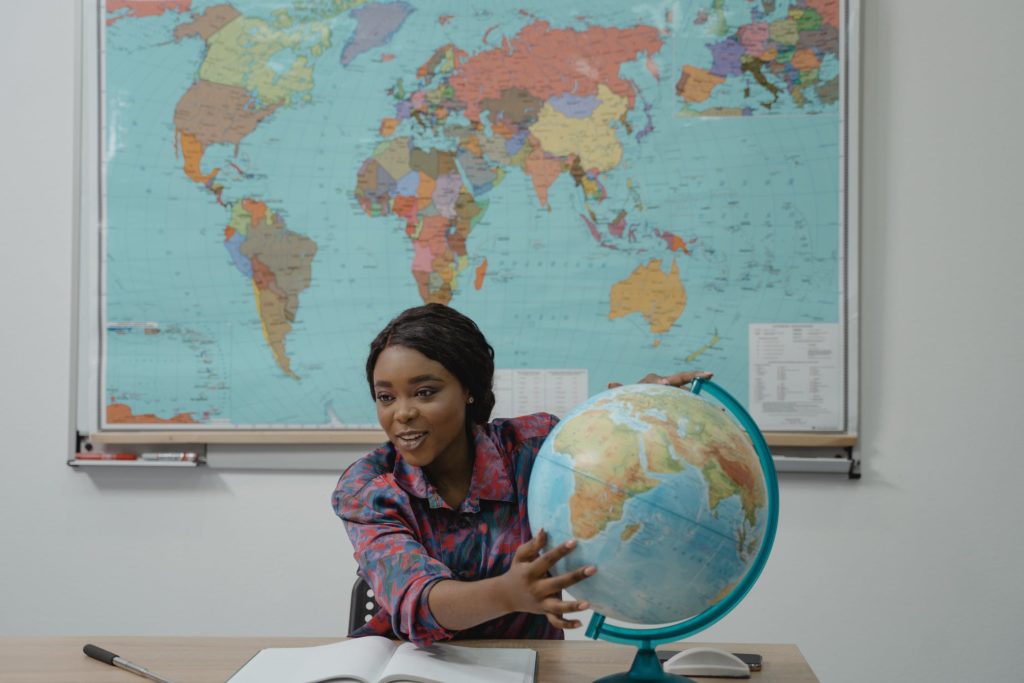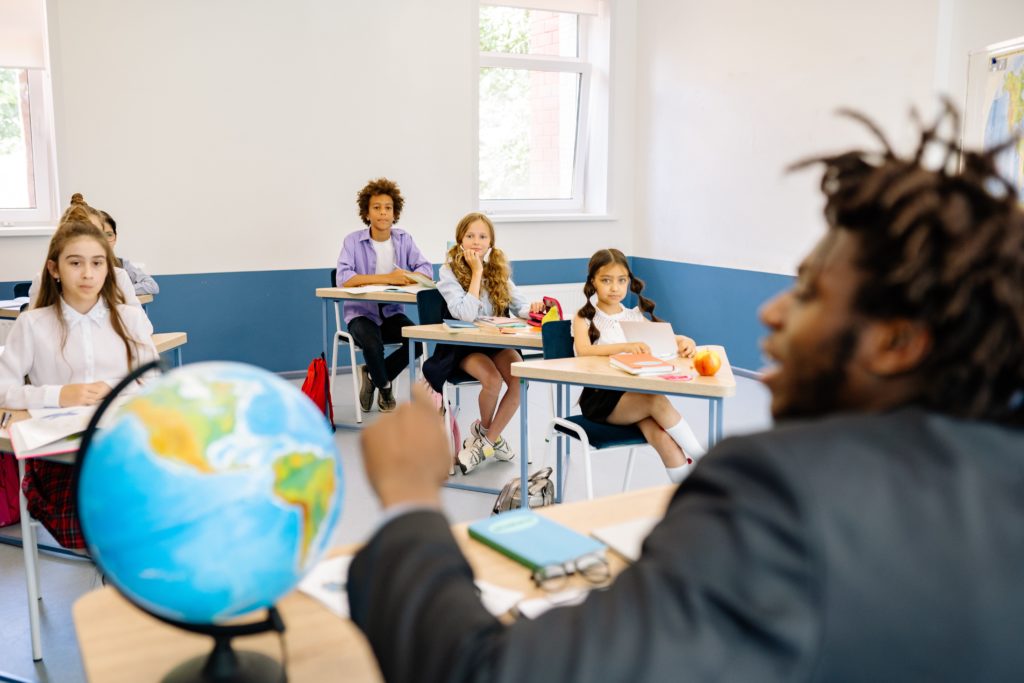![]() Systemic thinking, conceptions, and conceptual change
Systemic thinking, conceptions, and conceptual change
![]() (Digital) media and hands-on learning
(Digital) media and hands-on learning
![]() Teachers’ choices and evidence-based teacher education
Teachers’ choices and evidence-based teacher education
Upcoming projects
Current projects

Roland Zumbuehl, CC-BY-SA (Wikipedia) (cropped)
Double Door
2022-2024
together with lead-PI Dr. Dominik Sauerländer(Switzerland, history)
Funded by the Verein Doppeltür. More information: https://www.doppeltuer.ch

Pexels, Pixabay,
GeoConcepts-Blog
since 2017
initiated together with Dr. Rod Lane (then Australia, now New Zealand)
![]()
![]()
The blog can be found here: https://blogs.fhnw.ch/GeoConcepts/
It makes geography education research more accessible to teachers. In the GeoConcepts blog, teacher students summarize learner and teacher conception research. They also draw conclusions for classroom practice.

Pexels, Brett Sayles
Teachers’ concepts, teachers’ practices and choices, conceptual change and evidence-based teacher education
since 2015
partially with my students
![]()
![]()
![]()
Past projects

Pexels, Tima Miroshnichenko
Trends in International Geography Assessment (#TIGAS)
since 2016
with Prof. Dr. Michael Solem, Prof. Dr. Joseph Stoltman, Prof. Dr. Injeong Jo (all USA), Dr. Erik Bijsterbosch (Netherlands), Prof. Dr. Theresa Bourke (Australia), Prof. Dr. Chew-Hung Chang (Singapore), Dr. Eugenio Gonzalez (IEA & ETS), Dr. Dirk Hastedt (IEA), Dr. Jon Moore (ETS), Dr. Rod Lane (New Zealand), Prof. Dr. Miroslav Marada (Czechia), Prof. Dr. Okkyong Yoon (South Korea), Prof. Dr. Armin Rempfler (Switzerland)
![]()
![]()
The project aimed at developing an international geography assessment that meets the standards of the TIMSS 8th grade assessment mode, introducing geography as an international assessment. The project website is http://www.tigas2023.com
The SNSF funded an international exploratory workshop from September 10-12, 2017 in Switzerland.
Article about the project on the AAG site

Pexels
Teacher Concepts of Digital Tools in Education (#TCDTE)
2017-2021
together with Prof. Dr. Marko Demantowsky (Switzerland, history)
![]()
![]()
![]()
Pilot studies with pre- and in-service history teachers were conducted in Germany’s Ruhr area (2011/2012) and in Basel (2016/2017) by Prof. Dr. Marko Demantowsky.
From 2017 on, I worked with Prof. Dr. Marko Demantowsky to further develop the questionnaire. Other researchers were also asked for their input and Dr. Robin Schmidt also created an adapted version for Waldorf school teachers.
We transformed the questionnaire to also study geography and social studies teachers as well as later also ethics-religions-community (ERG) teachers. The new survey was done online. The project collected data on
- teachers’ and teacher students’ conceptions of the subjects geography, history, RZG (social studies) and ERG
- how well prepared they feel to teach the subject areas geography, history, political education, RZG, philosophy, ethics, religion, and ERG
- what they think is the main purpose of geography or history education
- their interests in topics (history or geography), eras and spatial examples
- their conceptions about characteristics of a good subject teacher
- self-assessed sources for their conceptions of the subject
- which sources they use for information and how credible they think these are as well as how many empirical studies they think they know about learning and teaching their subject
- how frequently they use certain methods in their classes and as how constructivist they see themselves
- how they decide which methods they use in their classes
- where they think their students’ conceptions come from
- whether they have noticed student misconceptions in the recent past and how they have reacted to that
- their internet use
- as well as a variety of background data

Pexels, Yan Krukov
Teachers’ beliefs on diversity
2017-2018
with Prof. Dr. Gabriel Horenczyk (Israel)
![]()
This study looked at teachers’ beliefs on diversity. This study differentiated between migration-related and religious diversity.

Pexels, SpaceX
Young Scientists as Change Explorers: Students Evaluating Environmental Change in Europe with Digital Space Technologies (#YCHANGE)
2016-2018
with Nicole Notter (Switzerland), Prof. Dr. Alexander Siegmund (Germany, with Dr. Stephan Fuchs, Dr. Simone Naumann, Dr. Martin Hämmerle, Dr. Thomas Kisser), Dr. Terje Väljataga (Estonia, with Pjotr Savitski and Priit Tammets) and Prof. Dr. Premysl Stych (Czechia, with Josef Laštovička)
![]()
![]()
Across Europe, the use of satellite images is demanded by curricula. But there is a gap to classroom practice, where they are often not used, especially beyond simply looking at true color printed images. In the EU Erasmus+ and Movetia Foundation funded project YCHANGE, we developed a remote sensing curriculum, ready-to-use learning materials and conducted teacher training events.
You can read the results of the accompanying research with teachers in our Schulman et al. (2021) article.

Pexels, Mikhail Nilov
Learning to Understand the Earth – Using modern Satellite Image Technology for Earth Observation for Adolescents (#Space4Geography)
2014-2016
with Prof. Dr. Alexander Siegmund, Dr. Nils Wolf, Dr. Simone Naumann, Vera Fuchsgruber (Germany)
![]()
A learning platform on digital remote sensing for secondary school students was developed in this DLR funded project granted to Prof. Siegmund (2013-2017). I started with consulting within the project in 2014. From 2015 to 2016, I was involved with working on developing one of the learning modules within the project, which deals with the topic ‘Tsunamis’. This has then been taken over by the core project team and re-designed.
You can read more about the project in the Wolf et al. (2015) article (German) or visit the learning platform at www.geospektiv.de. The learning modules use the software BLIF.

International Perspectives on Geography and Earth Science Teacher Education (#IPGESTE) 2016 conference
with the Organizing Committee
![]()
![]()
![]()
The conference was supported by a grant from the SNSF. People from 7 countries (4 continents) participated. You can learn more about the conference and see pictures on the conference website.
You can read key points from the conference’s workshops in the Viehrig et al. (2016) GeoAgenda article.
You can read key results from the conference’s presentations and keynotes in the Viehrig et al. (2019) JOGHE article.

Pexels, Pixabay
Sun is life – Primary school students become energy experts (#SIL)
-2015
with Prof. Dr. Alexander Siegmund (geography), Prof. Dr. Manuela Welzel-Breuer (physics) and their working groups (all Germany)
![]()
This is a DBU and VRD Foundation for Renewable Energy funded project granted to Prof. Dr. Alexander Siegmund and Prof. Dr. Manuela Welzel-Breuer (2014-2016). It is a follow up project to “Shaping the future”.
The project consisted of three working groups. Till June 2015, I was a part of the working group III. This group aimed at developing and empirically validating a competency model and test. The focus was on describing the systemic thinking skills and conceptions of primary school students with regard to the topic (renewable) energy.
Working group I trained teachers. Working group II developed partnerships between primary and secondary schools as well as suitable learning materials (including teacher guides). The aim was that secondary school students learn about renewable energy and then teach primary school students.

Pexels, Frans Van Heerden
Shaping the Future – Discovering renewable energy with children (#StF)
2014-2015
with Prof. Dr. Alexander Siegmund (geography), Prof. Dr. Manuela Welzel-Breuer (physics) and their working groups (all Germany)
![]()
This was a VRD Foundation for Renewable Energy funded project granted to Prof. Dr. Alexander Siegmund, Prof. Dr. Manuela Welzel-Breuer and Prof. Dr. Jürgen Storrer (biology) (2011-2015).
The project consisted of three working groups. Working group I trained teachers. Working group 2 developed partnerships between secondary schools and kindergartens.
ubproject II (working group Prof. Dr. Storrer, later working group Prof. Dr. Siegmund) has built and supported partnerships between secondary schools and kindergartens as well as suitable learning materials (including teacher guides). The aim was that secondary school students learn about renewable energy and then teach preschool students.
I joined working group III of the project, headed by Prof. Siegmund, in 2014. The group aimed at developing and empirically validating a competency model and test. The focus was on describing the systemic thinking competencies of kindergarten students with regard to the topic renewable energy. The phase 2014-2015 aimed at improving and shortening the existing test (developed by Prof. Dr. Alexander Siegmund, Janine Handrick and Julia Schlenker) in order to facilitate its use by kindergarten teachers. We also assessed the systemic thinking skills and conceptions of kindergarten students.
You can read about key results in the Viehrig & Siegmund (2018) white paper.

Pexels, Pixabay
Theory-guided survey of competency levels within the framework of probabilistic measurement models – a contribution to building a Heidelberg Inventory of Geographic System Competency (#HEIGIS)
2009-2011
with Prof. Dr. Alexander Siegmund (geography), Prof. Dr. Joachim Funke (psychology), Sascha Wüstenberg (psychology), Samuel Greiff (psychology) (all Germany)
![]()
This was a DFG funded priority-program 1293 project granted to Prof. Dr. Alexander Siegmund and Prof. Dr. Joachim Funke.
The project aimed at the theory-guided development of a test that is sound both from the point of view of geography education and measurement theory. This test and the competency model were then empirically validated within the framework of probabilistic measurement models.
You can read about key results of the project in the Viehrig et al. (2017) book chapter.
As part of the project, I received a junior researcher grant from the priority-program 1293 for research stays abroad to spend some time in Israel with Prof. Dr. Nir Orion at the Weizmann Institute of Science.

Pexels, Anna Shvets, cropped
Exploring the effects of GIS use on students’ achievement in geography
2007-2014
![]()
![]()
This was my doctoral thesis project. It was supervised by Prof. Dr. Alexander Siegmund (geography, Germany). The second advisor was Prof. Dr. Nir Orion (earth science, Israel).
This project was supported by a Klaus-Murmann PhD fellowship by the SDW (2008-2009).
The project aimed at providing insights regarding the effects of working with GIS, compared to the effects of working with traditional paper maps, on student achievement of selected aspects of geographic system competency. The main quantitative study used a geography assessment developed specifically for the study and a pre-test-post-test design with control group. Data was collected in 3 German federal states. Data analysis used both classic and probabilistic measurement theory.
You can read the results in the dissertation (published 2015).

Pexels, Francesco Paggiaro
Indian Life in Karlsruhe – survey and development of teaching material for primary school
2005
This was my M.A./ 1st State Exam thesis project.
It was supervised by Dr. Eckhard Thomale and Jun.-Prof. Dr. Havva Engin at the University of Education Karlsruhe.
![]()
The first part of the project aimed at investigating Indians living in Karlsruhe as a local visible minority group with the help of a questionnaire, participant observation and conversations. Moreover, I analyzed the image of India(ns) presented in selected school- and children’s books.
In the second part of the project, a plan for an inquiry project and some teaching materials was created. It aimed at portraying the diversity of India more fully without overstraining primary school children’s capabilities, by emphasizing direct contact to Indians and searching traces of Indian influences in Karlsruhe.